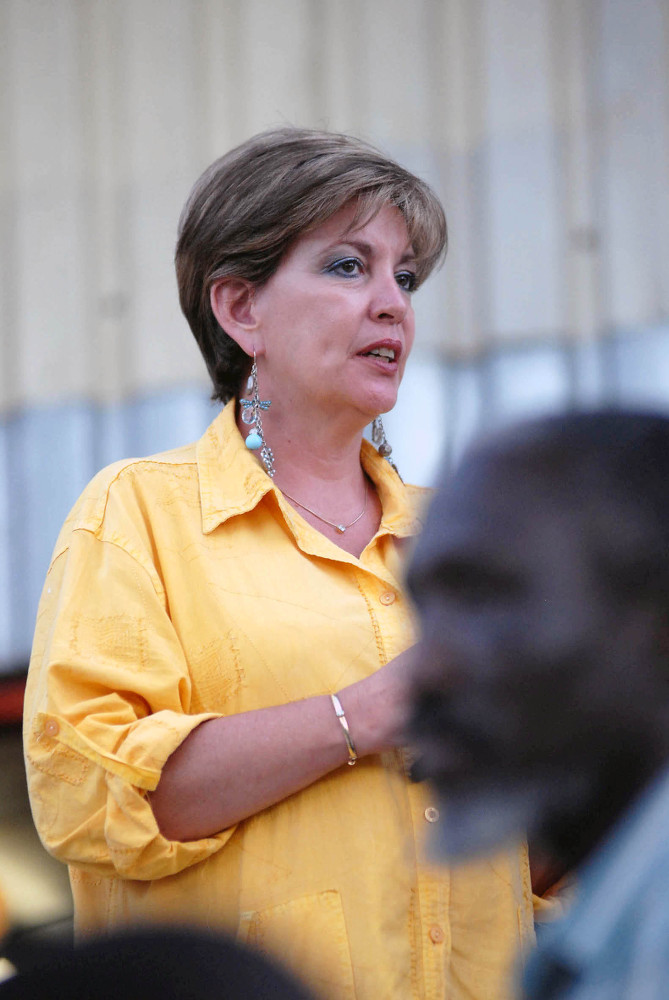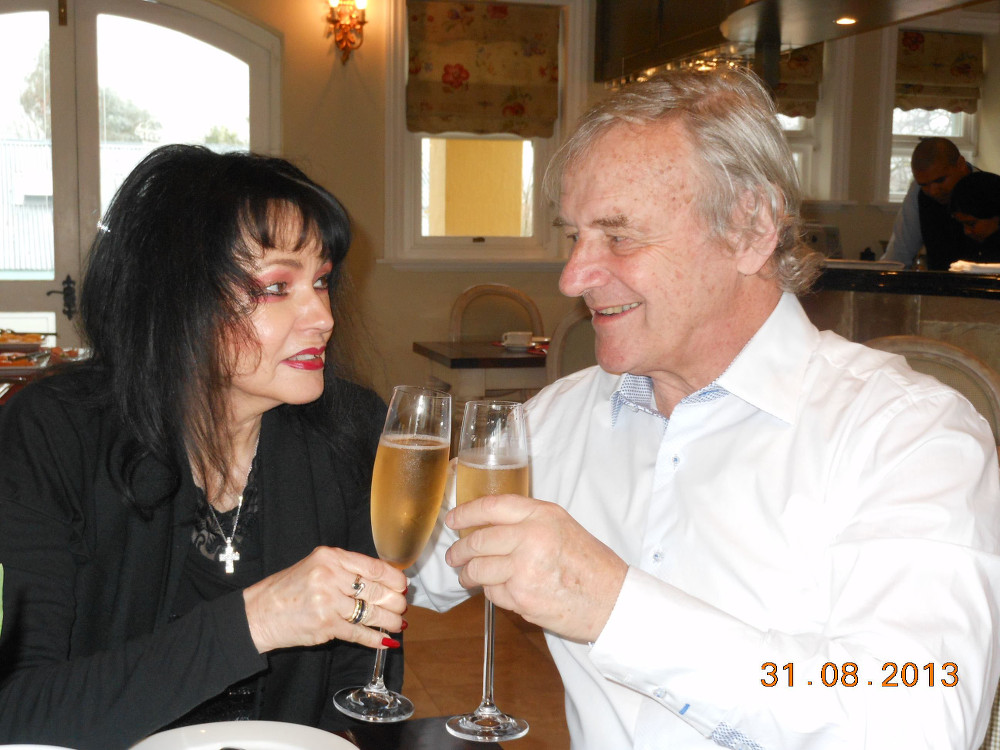DA councillor Marga Haywood claims a city decision to approve Carol and Dixie Strong’s plans to rebuild their Bakoven house might have been biased.
The Democratic Alliance-controlled City of Cape Town has become embroiled in a row in which it has been accused in a high court application of making a planning decision to favour a political donor.
Mayor Patricia de Lille and the city council, meanwhile, have taken a number of decisions that in effect favour the alleged donor’s controversial plans to build a house in the exclusive seaside suburb of Bakoven.
This includes commissioning a top audit firm to investigate whistleblower Marga Haywood, the DA’s ward councillor for the area.
The allegations revolve around the city’s decision in June last year to approve the building plans of Bakoven homeowner Carol Strong. A group of eight of her neighbours and a ratepayers’ association have applied to the high court in Cape Town to overturn the decision.

DA councillor Marga Haywood. (David Harrison, M&G)
Led by McCain Foods director Mark McCain, they argue that they were not all informed of the plans in good time, that Strong’s plans are undesirable and that the city’s decision was irrational and irregular. The city has denied this.
Strong’s plans include arguably minor departures from the area’s unique and strict heritage rules: a larger building than is allowed, the removal of boundary trees and the installation of a solar water heater.
Such breaches require the city council’s consent, and it is not unusual for this to be granted. But it is the allegation of donor bias coupled with the city’s substantial efforts to counter McCain and Haywood that have raised concerns.
A subpoena has now been issued for Haywood to testify before the high court in October.
Until the credibility of her claims is tested under oath, her version is contained only in a second-hand account by McCain’s lawyer in an affidavit before court.
According to this, DA councillor Errol Anstey told Haywood during a visit to the property that Strong and her family had been “big donors to the Democratic Alliance and that this should be taken into consideration” for Strong’s application.
She reported this to the council speaker, the DA’s Dirk Smit.
AmaBhungane could find no other witnesses to this statement. Anstey denied it, saying: “I did not make remarks to the effect that the Strongs were DA donors.”
Strong’s plans were approved a month later, in spite of Haywood’s vocal dissent during the council meeting – but these circumstances have been disputed.
Strong’s husband, Dixie, said she would not comment because the matter was before court. Haywood also refused to talk.
DA spokesperson Jonathan Moakes said: “The DA does not discuss who does or does not contribute to the party. As a result, we are un-able to comment.”
The Strongs co-own the fish-and-chips chain Snoekies. Dixie chaired Kauai’s board until recently, and the board of HSBC Securities South Africa in the 1990s.

Dixie Strong’s plans to rebuild their Bakoven house might have been biased. (David Harrison, M&G)
De Lille and the council have favoured the Strongs in three ways:
- At a disputed sub-council 16 meeting on June 18 2014 that approved Strong’s application, of which AmaBhungane heard a recording, Haywood gave no input when the Strong matter was discussed and approved. But later in the meeting she expressed confusion, saying she had missed the item because it was incorrectly labelled on the agenda. She voiced strong opposition, saying: “It is still a huge issue with my constituents.”
DA chairperson Demetri Qually dismissed Haywood’s belated input and closed the meeting.
Qually told amaBhungane it would not have been legally permissible to discuss the matter further.
This was contradicted last week by the sub-council’s ANC representative, Bheki Hadebe, who did not attend the meeting. Hadebe said further discussion would ordinarily have been allowed, and that the events pointed to strong “divisions” among DA councillors.
Qually, Anstey and the DA’s Dave Bryant filed statements under oath in the high court saying: “Haywood did not express any opposition to the application.” This seems incorrect.
- The second instance involves De Lille’s instruction in February this year that the city should fight McCain in court.
AmaBhungane has seen emails from a city legal official to McCain’s lawyer saying that officials had met and decided that the city would not oppose McCain – subject to De Lille’s approval. It was unlikely De Lille would oppose, the official said.
All that was needed was De Lille’s signature on top of five others, but the mayor held out for a month before instructing that the city must oppose. She defended her decision this week, saying it had nothing to do with the Strongs.
She said that, following advice from Smit, “it was decided that it was most appropriate to defend the systems of a structure of council”.
- In the third instance, Smit commissioned auditing firm KPMG to investigate Haywood for her opposition to the Strong application.
The investigation centres on a motion tabled by her immediately after the June 2014 meeting where Carol Strong’s application was approved. Haywood motivated that the decision was “erroneous” and should be rescinded and reviewed.
But the councillors agreed to refer the matter to Smit to determine what action, if any, should be taken. It took him eight months to initiate an investigation, which seemed to focus on Haywood herself.
In his affidavit, Qually said: “When councillor Haywood’s ‘motion to rescind’ came before the speaker’s office, there was a concern that [she] had transgressed the sub-council rules and code of conduct. As a result, KPMG was appointed to conduct a forensic investigation into her conduct in relation to the application and the motion she attempted to introduce.”
Smit added: “I wish to make clear that the investigation, which I have initiated, is related to [Haywood’s] motion.”
McCain’s lawyer Sean Rosenberg said in court: “It is not at all apparent why the unfortunate Haywood should have been rounded on and be the subject of an investigation by the speaker.”
But last week Smit said: “Haywood was not ‘targeted’ as an individual; ‘other matters’ were targeted.”
He said her allegation that Anstey was biased towards the Strongs “is currently under investigation and consideration”.
* Got a tip-off for us about this story? Email [email protected]

The M&G Centre for Investigative Journalism, a non-profit initiative to develop investigative journalism in the public interest, produced this story. All views are ours. See www.amabhungane.co.za for all our stories, activities and sources of funding.